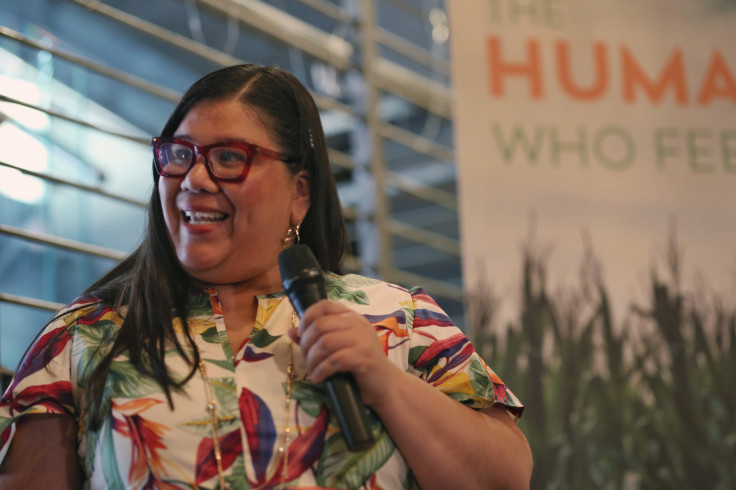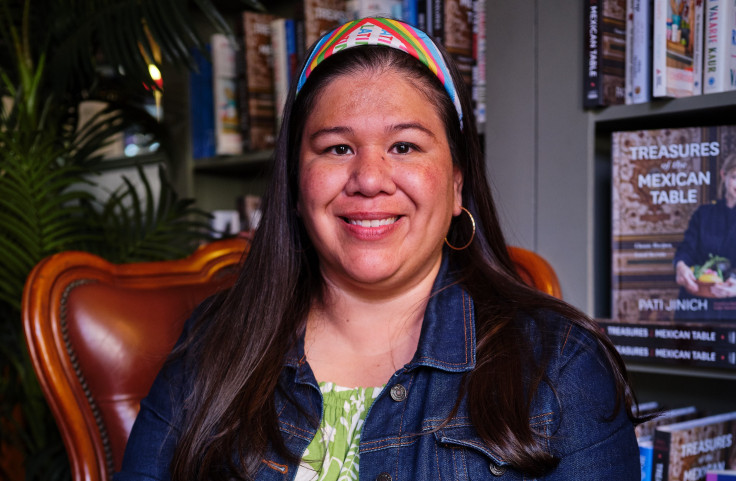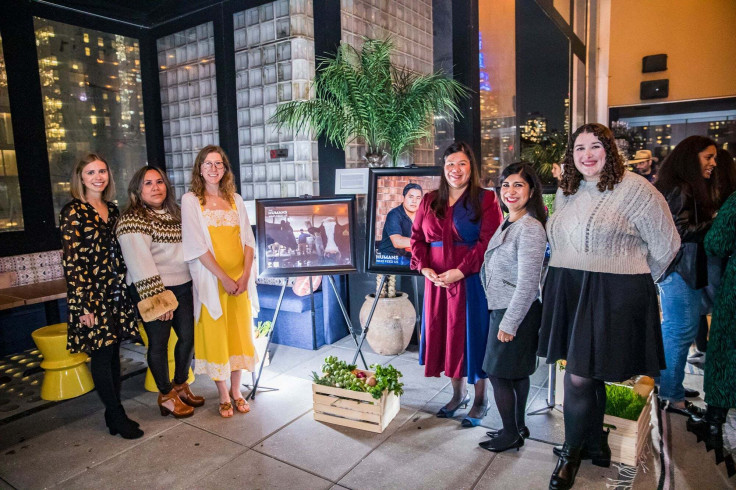This article is part of The Latin Times' Latinas 2024, a thematic week focused on Latina's impact on the U.S. economy, culture, and politics. Although Latinas comprise more than 30 million people in the U.S., according to the Pew Research Center, they still face major day-to-day challenges, including underrepresentation, the gender pay gap, labor discrimination, and sexual harassment. Discover our articles and interviews exploring the complexities of being Latina in the U.S. today.

Monica Ramirez says she was always destined to be an activist. Raised in a Mexican-American household, her family chose to live a farming life outside the migrant stream, "picking crops in different states across the country", as she likes to put it. Back then, she got to discover a vibrant agricultural community that would not only share their experiences working the fields, but their shared immigrant lives as a whole.
She was exposed to stories at a young age, of people with big dreams, big sacrifices and, in many cases, even bigger letdowns. Stories of people who travelled to the United States to create something better for themselves and their families and, in the end, failed to see their plans come to fruition.
By the time she turned 14 she felt "pulled into activism", understanding that her calling was to fight for those who were being dealt the worst hand in the country: immigrants. And she never looked back, living her life with the sole purpose of helping others.
Today she's a major name in the U.S.' activism world, having founded Justice for Migrant Women, an NGO that protects & promotes the rights of migrant women through education, public awareness & advocacy.
She also cofounded other initiatives that cater to Latino rights including the Latinx House, Poderistas and Alianza Nacional de Campesinas. With this last organization, Mónica wrote Querida Familia, a letter that was published in TIME magazine from farmworker women to women in the entertainment industry which is credited with helping spark the creation of the TIME'S UP movement.
We sat down with Mónica to talk about her activism work, the major issues affecting migrant women at the moment and what's at stake for immigrants this upcoming election.
This interview has been edited for length and clarity.

What exactly does Justice for Migrant Women do?
Justice for Migrant Women is a national organization that is focused on advancing the human and civil rights of migrant women workers. For us, that includes any woman who is moving across borders for work purposes. Traditionally in the United States, when people thought of migrant workers, they thought specifically of farm workers.
Over time, as we've started to see that there are migrant women who are working as workers in nail salons, in small factories, in hotels and restaurants, our work has expanded to try to address some of the needs that are being experienced by some migrant women in other fields beyond agriculture.
What are the main issues migrant women are facing at the moment?
The the number one issue that we as an organization are focused on addressing is sexual violence against migrant women workers, which sadly is a major problem for farmworker women, for women in restaurants and in other places. We also work on equal pay by addressing the major pay gap that exists for Latinas and other workers across the country. We work to try to ensure that the rights of pregnant women are being respected in the workplace and mother's rights are being respected in the workplace. Another major issue that we've been working on since the pandemic is mental health, because a lot of workers across the country have been experiencing mental health strain.

Let's talk about the immigration bill that the Biden administration was pushing and had the supported of some Republican senators. It could have been the most aggressive border security and migration overhaul bill in decades. What are your thoughts on it?
Our position and the need to address things in the way that we've been advocating for hasn't changed. First of all, migration has happened since the beginning of time. People will move. People are moving. People will move. Whether there's a border, a wall, a law. People are going to move because that's what people do out of necessity and for many other reasons. So we object to this idea that there would be any further restrictions placed on the border.
We have been very vocal about our opinion related to the tent cities that exist. And so this idea of tightening things on the border, basically what is doing is putting people in danger. People are dying because they're trying any means possible to get into the country. But that isn't the only way that people are dying. And this is where we have really been sounding the alarm as an organization. Migrant women and migrant children are being abducted, there are people who are going missing in those tent cities along the border. And the longer people are forced to wait in those tent cities, the more danger they're in. We've been very vocal to the Biden administration about this and other administrations over time.
The fact that there is a continued attempt to tighten things across the border also means that it reinforces false narratives like a border surge or that there are migrants in waves coming in. These ideas are supported by people who are anti-immigrant who are then using them to justify things like violence and discrimination against immigrant people and anyone who they think might be an immigrant. I think the fact that our country has not figured out how to address these issues in a humanitarian way, but specifically starting with actually improving the laws that exist for immigrants in this country, is abhorrent, and I think it is wrong.
So what would your message be for migrant voters this election? Is it the same risk for migrants regardless of who wins?
So in this election I think people are not going to evaluate who has the better policies. I think people are going to think about who has the least dangerous policy recommendations. Who has the policy recommendations that will be least harmful to immigrant people. And I think that that is really a sad state of affairs for our country when the question is not whose policies and recommendations are most welcoming, whose policy recommendations are going to be most helpful, whose policy recommendations are going to honor the millions and millions of dollars that the immigrant people in this country are putting into our economy. We're having a conversation about least bad. We are in a very, very dangerous position as far as I'm concerned.
What keeps you motivated going forward?
What pulls me into this work and keeps me in this work is this understanding that as someone who fights for justice, it is my job to fight for and alongside the people who are really being dealt the worst hand and in this case, in our country, immigrant people are being dealt the worst hand. I think that right now what we're living, as it as it pertains to immigrants in this nation, is the new chapter of the civil rights movement.
We as a country are made of immigrants and we will continue to be a country of immigrants. This is a decisive time for us to make a decision as to how we will be remembered in terms of how we treat immigrants, how we welcome immigrants, and what kinds of policies we're putting in place as a nation that is a leader around the globe in this global economy, what are the policies that we're putting in place that actually embrace and celebrate the immigrant people that are literally making this world turn?
© 2025 Latin Times. All rights reserved. Do not reproduce without permission.





